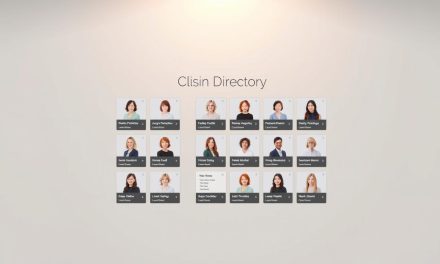Many of us want to work on our own terms. A self-employed contract lets you pick your projects and work at your pace. This brings a sense of fulfillment and satisfaction.
With a self-employed contract, you get the perks of freelancing. You also have the security of a contract. This includes a freelance agreement that looks out for your rights and interests.
Starting as a self-employed contractor can seem scary. But with the right help, you can do it with confidence. We aim to give you the knowledge and support you need to thrive. This way, you can enjoy the freedom of freelancing while having the security of a contract.
Table of Contents
Key Takeaways
- Self-employed contract work offers flexibility and autonomy
- A freelance agreement is essential to protect your rights and interests
- Self-employed contracts provide the security of a contract with the freedom of freelancing
- Transitioning to self-employed contract work requires guidance and support
- Combining the security of a contract with the freedom of freelancing is key to success
- Self-employed contract work can provide a sense of fulfillment and satisfaction
- A well-structured freelance agreement is critical for self-employed professionals
Understanding Self-Employed Contracts
As an independent contractor, knowing your contract is key. It covers the work, how you’ll get paid, and how long it lasts. This makes sure both sides are safe and respected. It’s important to check and talk about the contract to avoid problems.
We help independent contractors with contract talks. Our knowledge in contractor services gives you good advice. Knowing your contract well helps you work well with clients.
Key Features of Self-Employed Contracts
- Scope of work: clearly defines the tasks and responsibilities of the independent contractor
- Payment terms: outlines the payment schedule, method, and amount
- Duration of the contract: specifies the start and end dates of the project
Understanding these contract parts is vital. It protects your rights and makes sure you get paid right. We aim to give you the skills to thrive in your career. And enjoy being your own boss.
Advantages of Being Self-Employed
Being self-employed means you can set your own schedule. This flexibility is a big plus, helping you balance work and personal life better. With a self-employment contract template, you can outline your terms and conditions. This ensures you’re protected and know your obligations clearly.
Some of the key benefits of being self-employed include:
- Flexibility in work hours, allowing you to choose when and how much you work
- Autonomy in choosing projects, enabling you to select work that aligns with your skills and interests
- Potential for higher earnings, as you can negotiate your rates and take on as much or as little work as you want
Having a self-employment contract template helps you navigate self-employment confidently. It ensures you understand your rights and are protected from disputes. By controlling your work and schedule, you can achieve a better work-life balance. This freedom and flexibility are key benefits of being self-employed.
Understanding your self-employment contract rights and using a template lets you focus on growing your business. You can reach your goals without worrying about the details of being self-employed.
Disadvantages to Consider
Being self-employed has its perks, but there are downsides too. As a freelancer, you’ll need to handle freelancing contract terms and draft a self-employment agreement. This is to safeguard your rights and interests.
Some major drawbacks include:
- No employee benefits like health insurance or retirement plans
- Unstable income, with earnings changing each month
- Having to manage your own taxes, which can be a hassle
It’s vital to thoroughly review and grasp the freelancing contract terms and self-employment agreement. This ensures you’re well-protected. You need to know your duties, rights, and responsibilities as a freelancer.
Knowing these downsides and how to deal with them can help you succeed in self-employment. It can lead to a fulfilling and lasting career.

| Disadvantage | Description |
|---|---|
| Lack of employee benefits | No access to health insurance, retirement plans, or other benefits |
| Income stability challenges | Earnings may vary from month to month, making budgeting difficult |
| Responsibility for taxes | Complex and time-consuming tax obligations |
Legal Requirements for Self-Employment
Being an independent contractor means you must know the law. You need to get the right licenses, understand taxes, and use a contractor agreement. This protects your rights and interests.
It’s important to learn about the legal needs for your field and area. You might need to register your business, get licenses, and follow tax laws.
Necessary Licenses and Permits
Here are some licenses and permits you might need:
- Business registration
- Professional licenses
- Permits to operate in your area
Understanding Tax Obligations
As a contractor, you handle your taxes. This includes income and self-employment taxes. It’s key to know your tax duties and pay on time to avoid trouble.
A contractor agreement template is vital. It outlines the work, payment terms, and needed licenses or permits.
Understanding the law and using a contractor agreement template helps protect your business. It ensures you follow all laws and regulations.
Finding Self-Employed Contract Work
Finding contract work as a self-employed person can be tough. But, with the right approach, it can also be very rewarding. We provide guidance to help you find contract work. This ensures you have a freelance agreement to protect your rights.
There are many job platforms to help you find contract work. These platforms match freelancers with clients who need specific skills. Some top platforms include:
- Upwork
- Fiverr
- Freelancer
Networking is also key in finding contract work. Attend industry events and join professional groups. Connect with other freelancers and clients to build relationships and find new opportunities. With a self-employed contract, you get paid fairly and your rights are protected.
By following these tips and using the right resources, you can find contract work that fits your needs. Always have a freelance agreement to protect your rights and ensure fair payment.
| Job Platform | Features | Benefits |
|---|---|---|
| Upwork | Freelance job postings, client reviews, payment protection | Access to a large client base, secure payment system |
| Fiverr | Freelance services, client reviews, payment protection | Opportunity to offer unique services, secure payment system |
| Freelancer | Freelance job postings, client reviews, payment protection | Access to a large client base, secure payment system |
Setting Your Rates
As an independent contractor, setting your rates is key to getting paid right. Think about your skills, experience, and what others charge. You want to be competitive yet earn enough to live on.
Contractor services vary a lot, so your rates will change based on what you do. For instance, if you offer unique services, you might charge more than those with more basic services.
Factors to Consider when Pricing
- Your level of experience and expertise
- The demand for your services
- The level of competition in your industry
- The costs associated with providing your services
Common Pricing Models
Independent contractors often use hourly, project-based, or retainer-based pricing. The right model for you depends on your services and what clients need.

By looking at these points and picking a pricing model that fits, you can set fair rates. This way, you’ll get paid well for your work as an independent contractor.
Managing Your Finances
Managing your finances well is key when you’re self-employed. A good self-employment contract template helps with this. Knowing your self-employed contract rights is also important to avoid problems.
Here are some tips for managing your money:
- Keep track of your income and expenses to find ways to save money.
- Make a budget for both your business and personal life. This ensures you have enough for taxes and other bills.
- Save some of your income for emergencies and savings.
It’s important to save for taxes as a self-employed person. Knowing your tax duties helps you avoid fines. Using a self-employment contract template and understanding your self-employed contract rights helps you meet your tax obligations.
By following these tips, you can enjoy being self-employed while keeping your finances stable.
| Financial Aspect | Importance |
|---|---|
| Tracking income and expenses | High |
| Creating a budget | High |
| Saving for tax time | High |
Developing Client Relationships
As a self-employed person, building strong client relationships is key to your success. You need to understand your freelancing contract and self-employment agreement well. This ensures you meet your clients’ expectations. Good communication is vital for trust and a solid working relationship.
Being open and quick to respond can help you gain loyal clients. Start by setting clear boundaries and managing expectations early on. A good self-employment agreement can prevent misunderstandings and keep both sides in sync.
Effective Communication Strategies
Effective communication includes regular updates, listening well, and giving clear feedback. Being approachable and open to feedback shows your dedication to quality work. This builds a strong base for your freelancing and self-employment agreements.
Maintaining Professionalism
Keeping professionalism is also key for strong client relationships. This means being reliable, meeting deadlines, and delivering top-notch work. Showing your expertise and commitment helps build trust and a good reputation.
By following these tips and understanding the importance of freelancing contracts and self-employment agreements, you can build strong client relationships. This will help you succeed in your self-employed business.
Balancing Work and Life
Being an independent contractor can make it hard to balance work and personal life. But, with good time management, you can manage both. A well-structured contractor agreement template helps keep you organized and focused.
Managing your time well is key for independent contractors. Here are some tips to help you balance work and life:
- Prioritize tasks: Make a list of tasks and prioritize them based on importance and urgency.
- Set boundaries: Establish clear boundaries between work and personal life to avoid burnout.
- Take breaks: Take regular breaks to recharge and avoid fatigue.
Remember, breaks are not a luxury but a must. Taking care of your health boosts your productivity and well-being. As an independent contractor, you decide your schedule. Use a contractor agreement template to outline your work terms.
Tools to Enhance Productivity
Managing a self-employed contract or freelance agreement needs many skills. One key skill is working efficiently and effectively. To do this, using various tools to boost productivity is essential. These tools help make tasks easier, cut down on paperwork, and let professionals concentrate on their main work.
Software for Invoicing and Tracking
Software for invoicing and tracking is a must for self-employed folks. It helps manage money, make professional invoices, and track payments. With this software, professionals can get paid on time and keep an eye on their spending.
Project Management Tools
Project management software is also vital for self-employed people. It lets them organize tasks, set deadlines, and work with clients or team members. Using these tools, self-employed folks can deliver top-notch work, meet deadlines, and build strong client relationships.
Popular tools for self-employed individuals include cloud-based software, mobile apps, and desktop apps. These tools help manage different parts of a self-employed contract or freelance agreement. They cover invoicing, tracking, project management, and time tracking.
By using these tools, self-employed individuals can work more efficiently, feel less stressed, and enjoy a better work-life balance. Whether you’re new to self-employment or have been doing it for years, the right tools can greatly improve your success.
Future Trends in Self-Employment
The world of work is changing fast, and self-employment is no exception. Remote work and new client needs are big trends for self-employed folks to keep up with.
The Rise of Remote Work Opportunities
The COVID-19 pandemic made remote work more common, and it’s here to stay. Self-employed people can work with clients worldwide, growing their business without needing a big office. A good self-employment contract helps protect their rights in this new remote world.
Evolving Client Expectations
Today, clients want specialized skills, quick action, and affordable solutions. Self-employed pros need to keep learning, use new tech, and adjust their services to meet market demands. Knowing their contract rights helps them get better deals and offer great value to clients.
As self-employment keeps evolving, it’s key for professionals to stay updated and adapt. By doing so, they can succeed in the exciting and varied world of independent work.
FAQ
What is a self-employed contract?
A self-employed contract is an agreement between you and a client. It outlines the work you’ll do and the terms. You’ll provide your own tools and services to complete the project.
What are the key features of self-employed contracts?
Self-employed contracts have key features like the scope of work and payment terms. Understanding these ensures your rights are protected.
What are the advantages of being self-employed?
Being self-employed offers flexibility and the chance to earn more. You can choose projects that fit your skills and interests. This allows for a better work-life balance.
What are the disadvantages of being self-employed?
Self-employment lacks employee benefits and can be unstable. You’re also responsible for taxes. A contract helps protect your rights and interests.
What are the legal requirements for self-employment?
Self-employed individuals must meet legal requirements. This includes getting licenses and understanding taxes. A contract template can guide you through these steps.
How can I find self-employed contract work?
Job platforms and networking can help find contract work. We’ll discuss popular platforms and networking tips. A freelance agreement protects your rights.
How do I set my rates as a self-employed individual?
Setting rates involves considering your skills and industry standards. We’ll cover pricing models to help you set fair rates.
How do I manage my finances as a self-employed individual?
Managing finances as a freelancer can be tough. We’ll discuss budgeting and saving for taxes. This ensures financial stability.
How can I develop effective client relationships as a self-employed individual?
Building strong client relationships is key. We’ll talk about communication and professionalism. This leads to repeat business and referrals.
How can I balance work and life as a self-employed individual?
Work-life balance is challenging but possible. We’ll discuss time management and self-care. This helps maintain a healthy lifestyle.
What tools can I use to enhance my productivity as a self-employed individual?
Productivity tools are essential. We’ll explore software and apps for invoicing and project management. These tools boost efficiency.
What are the future trends in self-employment?
The self-employment landscape is changing. We’ll discuss trends and how to adapt. A contract template protects your interests in this evolving field.





